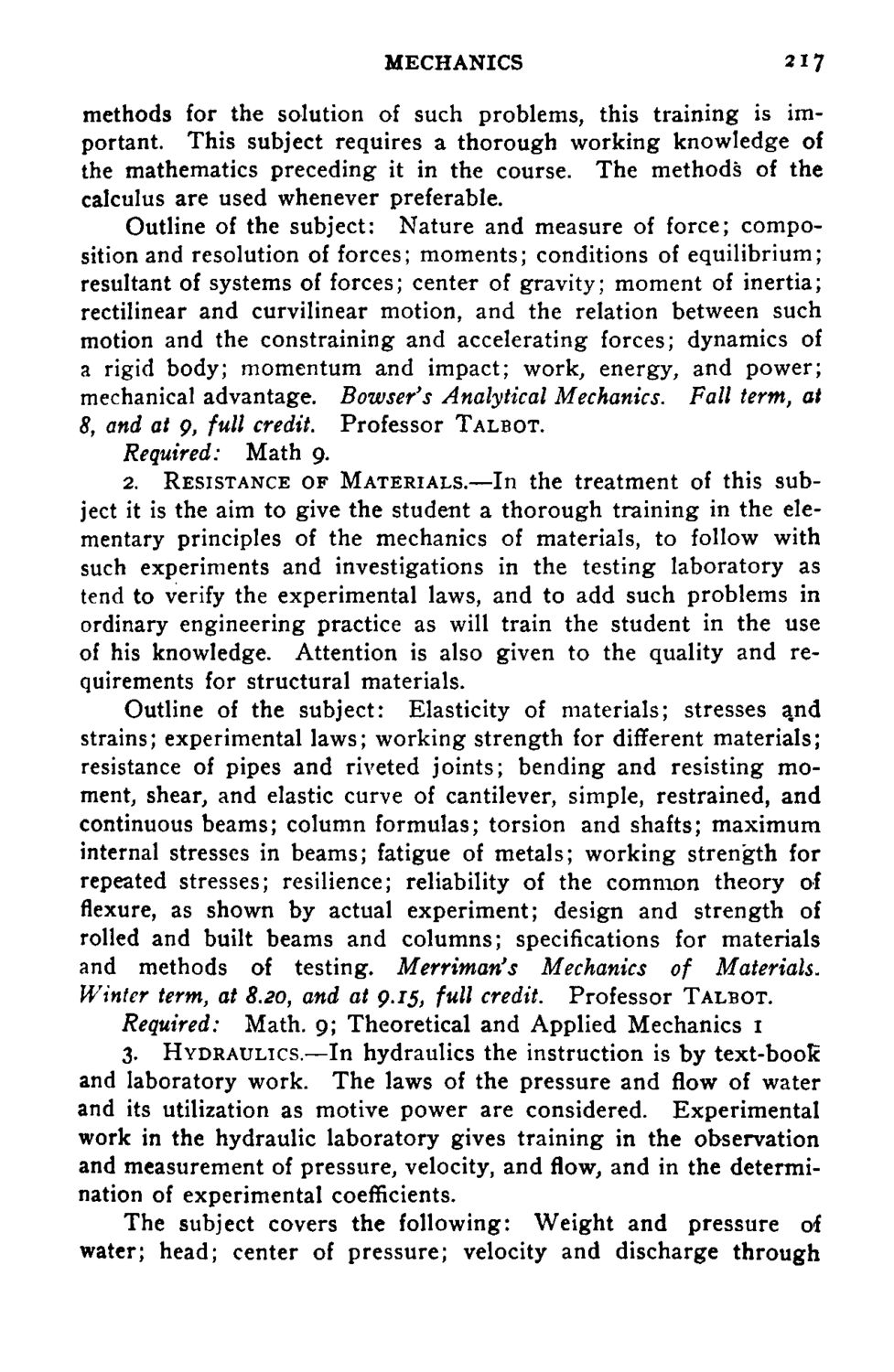| |
| |
Caption: Course Catalog - 1897-1898
This is a reduced-resolution page image for fast online browsing.

EXTRACTED TEXT FROM PAGE:
MECHANICS 217 methods for the solution of such problems, this training is important. This subject requires a thorough working knowledge of the mathematics preceding it in the course. The methods of the calculus are used whenever preferable. Outline of the subject: Nature and measure of force; composition and resolution of forces; moments; conditions of equilibrium; resultant of systems of forces; center of gravity; moment of inertia; rectilinear and curvilinear motion, and the relation between such motion and the constraining and accelerating forces; dynamics of a rigid body; momentum and impact; work, energy, and power; mechanical advantage. Bowser's Analytical Mechanics. Fall term, at 8, and at 0, full credit. Professor TALBOT. Required: Math 9. 2. RESISTANCE OF MATERIALS.—In the treatment of this sub- ject it is the aim to give the student a thorough training in the elementary principles of the mechanics of materials, to follow with such experiments and investigations in the testing laboratory as tend to verify the experimental laws, and to add such problems in ordinary engineering practice as will train the student in the use of his knowledge. Attention is also given to the quality and requirements for structural materials. Outline of the subject: Elasticity of materials; stresses a,nd strains; experimental laws; working strength for different materials; resistance of pipes and riveted joints; bending and resisting moment, shear, and elastic curve of cantilever, simple, restrained, and continuous beams; column formulas; torsion and shafts; maximum internal stresses in beams; fatigue of metals; working strength for repeated stresses; resilience; reliability of the common theory of flexure, as shown by actual experiment; design and strength of rolled and built beams and columns; specifications for materials and methods of testing. Merriman's Mechanics of Materials. Winter term, at 8.20, and at 9.15, full credit. Professor TALBOT. Required: Math. 9; Theoretical and Applied Mechanics 1 3. HYDRAULICS.—In hydraulics the instruction is by text-book" and laboratory work. The laws of the pressure and flow of water and its utilization as motive power are considered. Experimental work in the hydraulic laboratory gives training in the observation and measurement of pressure, velocity, and flow, and in the determination of experimental coefficients. The subject covers the following: Weight and pressure of water; head; center of pressure; velocity and discharge through
| |